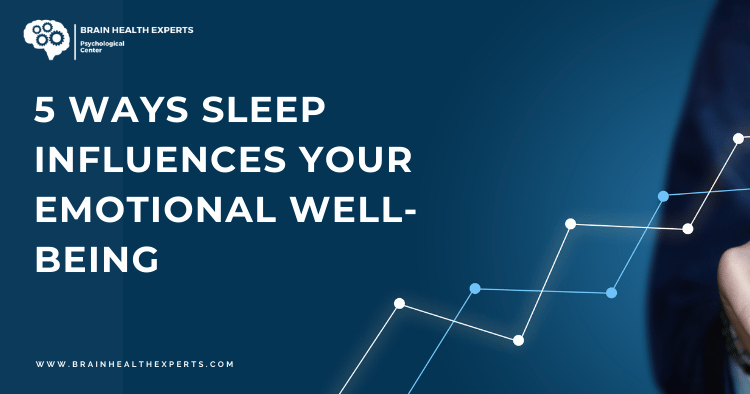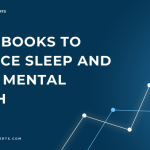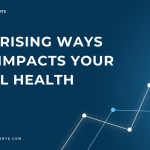Table of Contents
- Understanding the Connection Between Sleep and Emotions
- Enhanced Mood Regulation
- Improved Stress Management
- Better Social Interactions
- Increased Resilience to Emotional Distress
Sleep is a fundamental aspect of our lives, often overlooked in the hustle and bustle of daily routines. However, the impact of sleep on our emotional well-being is profound and far-reaching. In this blog, we’ll explore five critical ways sleep influences your emotional health—helping you understand why catching those Zs is vital for your mental state.
Understanding the Connection Between Sleep and Emotions
Before diving into the specific ways sleep affects emotional well-being, it’s essential to understand the relationship between sleep and our mental health. Sleep is not merely a passive activity; it plays a crucial role in cognitive function, emotional regulation, and overall psychological wellness. According to the National Sleep Foundation, adults typically need between 7 to 9 hours of sleep per night to function optimally.
Research indicates that insufficient sleep can lead to heightened emotional reactivity. A study published in the journal Sleep found that sleep deprivation can amplify negative emotions and hinder our ability to respond to stress effectively.
For those struggling with mental health issues like anxiety or depression, the relationship between sleep and emotional well-being becomes even more critical.
Enhanced Mood Regulation
One of the most significant ways sleep impacts emotional well-being is through mood regulation. Sleep deprivation can lead to irritability, mood swings, and feelings of sadness. When we don’t get enough sleep, our brain’s ability to process emotions diminishes, making it harder to maintain a positive mood throughout the day.
What Happens When We Sleep?
During sleep, particularly during the REM (Rapid Eye Movement) stage, our brains process emotions and consolidate memories. This reprocessing helps us make sense of our emotional experiences, allowing for better emotional regulation when we are awake. The American Psychological Association highlights that individuals who consistently get adequate sleep report higher levels of positive emotions and lower levels of mood disturbances.
Tips for Better Sleep and Mood
- Create a Sleep Schedule: Go to bed and wake up at the same time every day.
- Limit Screen Time: Reduce exposure to screens at least an hour before bedtime to improve sleep quality.
- Practice Relaxation Techniques: Engage in meditation or deep breathing exercises before sleep.
For additional insights on how positive thinking can transform your mood, visit 10 Ways Positive Thinking Boosts Emotional Well-Being.
Improved Stress Management
Stress is a natural part of life, but how we manage it can significantly affect our emotional health. Quality sleep plays a crucial role in how our bodies respond to stressors. When we are well-rested, our brains can better regulate the stress hormone cortisol, leading to improved reactions to stressful situations.
The Sleep-Stress Cycle
Inadequate sleep can create a vicious cycle where stress leads to poor sleep, which in turn exacerbates stress levels. A study by the National Institutes of Health found that participants who managed to get a good night’s sleep reported lower levels of perceived stress compared to those who were sleep-deprived.
Strategies for Managing Stress Through Sleep
- Maintain a Comfortable Sleep Environment: Keep your bedroom dark, quiet, and at a comfortable temperature.
- Incorporate Physical Activity: Regular exercise can reduce stress and promote better sleep.
- Avoid Caffeine and Heavy Meals Before Bed: These can disrupt sleep patterns and increase stress levels.
For effective stress management techniques, check out 10 Proven Stress Management Techniques for Daily Relief.
Better Social Interactions
Have you ever noticed that after a bad night’s sleep, you’re less inclined to engage with others? This is because sleep deprivation can impair our social skills and emotional intelligence. When we’re tired, our ability to read social cues and respond empathetically can diminish, leading to misunderstandings and strained relationships.
The Importance of Social Connections
Healthy social interactions are vital for emotional well-being. A lack of sleep can make us more withdrawn or irritable, which can negatively affect our relationships. The Harvard Medical School emphasizes that good sleep contributes to better communication, understanding, and connection with others.
Enhancing Social Interactions Through Sleep
- Prioritize Sleep: Make sleep a non-negotiable part of your routine to improve your social skills.
- Engage in Group Activities: Participate in social events or classes to enhance connections while being well-rested.
- Practice Active Listening: When well-rested, you’re more equipped to listen and respond thoughtfully.
To further enhance your emotional intelligence and social skills, explore 7 Essential Social Skills for Boosting Emotional Intelligence.
Increased Resilience to Emotional Distress
Resilience is the ability to bounce back from difficult situations. Adequate sleep enhances our resilience, helping us cope better with challenges and setbacks. When we’re well-rested, our brains are equipped to process and respond to stressors more effectively, allowing for a healthier emotional response.
Sleep and Coping Mechanisms
A study published in the journal Psychological Science found that individuals who get sufficient sleep are better at employing effective coping strategies during stressful situations. This means they can navigate life’s ups and downs with more ease and less emotional turmoil.
Building Resilience Through Better Sleep
- Establish a Wind-Down Routine: Develop a relaxing pre-sleep ritual to signal to your body that it’s time to rest.
- Seek Support When Needed: Don’t hesitate to talk to friends or professionals if you’re feeling overwhelmed.
- Reflect and Journal: Writing about your feelings can help process emotions and improve resilience.
For strategies to boost your resilience, consider 10 Effective Strategies for Building Resilience in Mental Health.
Conclusion
Sleep is not just a luxury; it is a vital component of emotional well-being. By understanding how sleep influences our mood, stress management, social interactions, and resilience, we can prioritize this essential activity in our lives. So, if you’re struggling with emotional challenges, consider taking a look at your sleep habits. A good night’s sleep might just be the key to unlocking a happier, healthier you.
FAQs
Q: How much sleep do I need for optimal emotional health?
A: Most adults need between 7 to 9 hours of sleep per night for optimal emotional and physical health.
Q: What can I do if I have trouble sleeping?
A: Consider establishing a regular sleep routine, creating a relaxing environment, and avoiding stimulants before bedtime.
Q: Can napping help with emotional regulation?
A: Short naps (20-30 minutes) can be beneficial for mood and alertness, but long naps can disrupt nighttime sleep.
For more insights on the importance of sleep, check out Sleep.org and the National Sleep Foundation.
Sleep well and nurture your emotional well-being!





